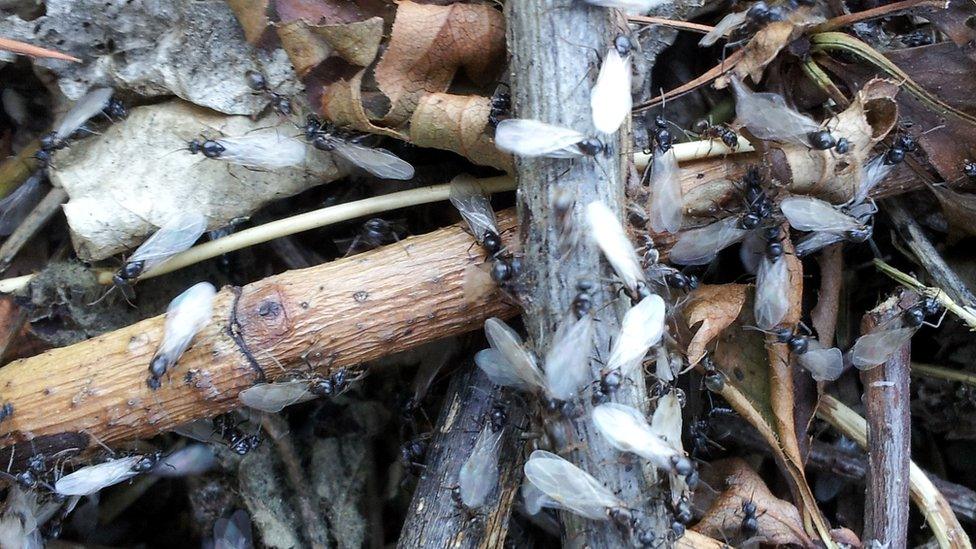Flying Ant Day: What is it and why does it happen?
- Published

Expect to see plenty of flying ants this week, after a mile-long swarm was picked up on a weather radar on the UK's south coast.
Every summer there is a day when thousands of giant flying ants emerge from their nests all at the same time - known as Flying Ant Day.
Despite the name, it can happen over a number of days in July and sees giant black clouds of winged insects taking flight across the UK and Ireland due to the hot weather.
When flying in groups, the insects look similar to rainfall on radars and were detected by the Met Office on Friday.
Sightings were also reported on social media.
Simon Partridge, a Met Office forecaster, said: "Every year around this time we do pick them up on the rain radar.
"At the moment it's harder to tell because we've got so many showers and the ants look like showers.
"It's generally the southern parts of the UK where we tend to notice it most. When we do get the rain, they don't fly as much."
Though they might put you off your picnic or barbeque, flying ants are not dangerous.
Why do ants fly?
The emergence of winged ants during summer often provokes a strong public reaction
Flying Ant Day usually arrives around mid July as the queens emerge and travel to set up new colonies.
Most ants that we see don't have wings but the queens and males do.
In summer, the young queens fly off to meet mates and set-up with their new group.
Although there is no such thing as a specific 'Ant Day', scientists have found that ants are good at short term weather prediction so chose a warm and calm day to travel.
This is often in mid to late summer in the UK but varies across the country.
Why are ants important?
(July 2020) 大象传媒 Weather's Matt Taylor talks about flying ants on 大象传媒 Breakfast
Scientists say the insects are an important part of the ecosystem, both as predators and as prey.
Lots of mammals and birds, such as swifts and gulls, rely on them as a food source.
Ant colonies also mean that air is able to get into the soil, keeping it healthy.
- Published18 October 2019
- Published19 October 2018
